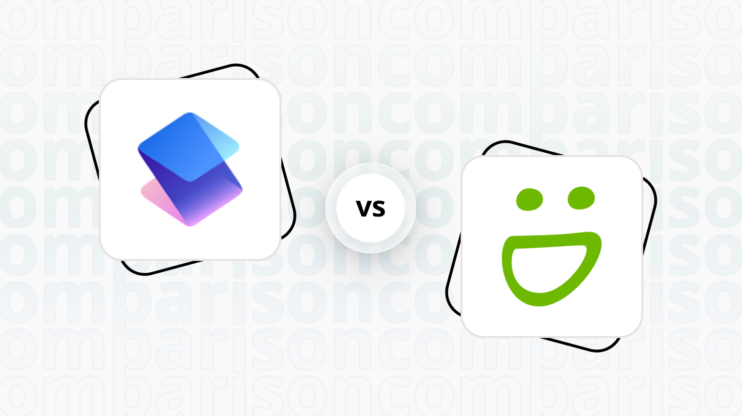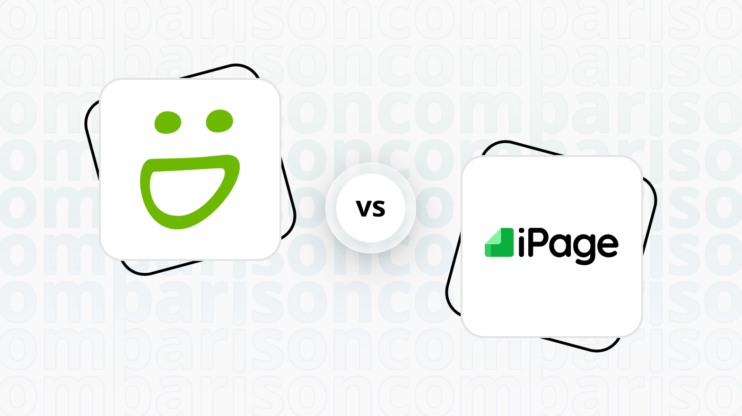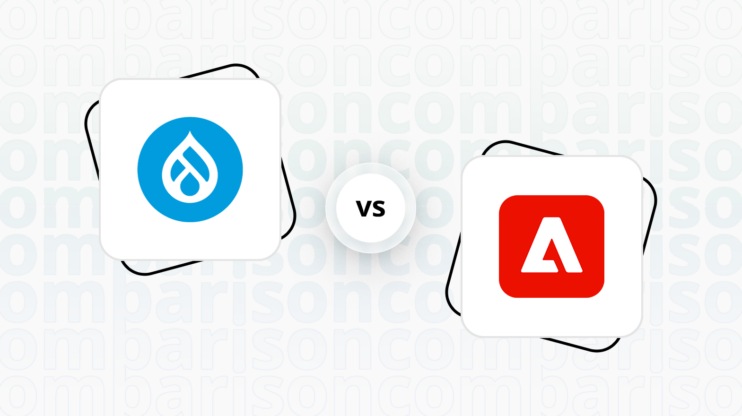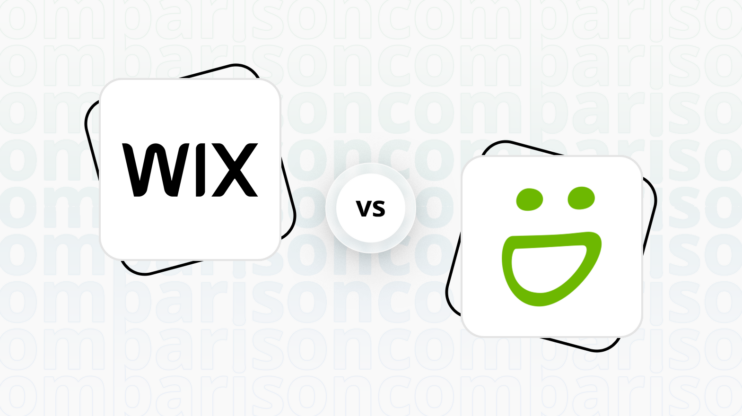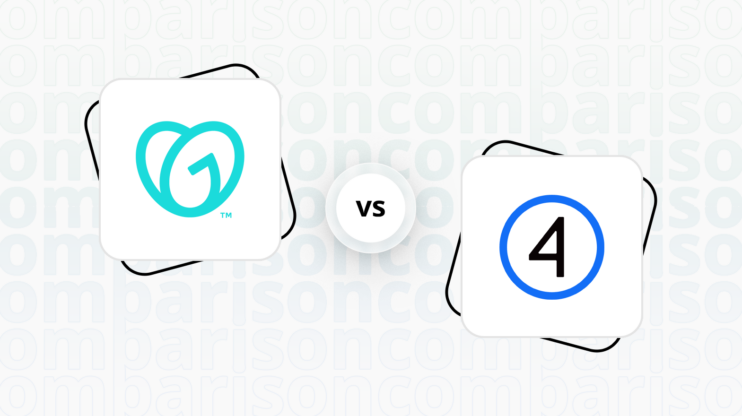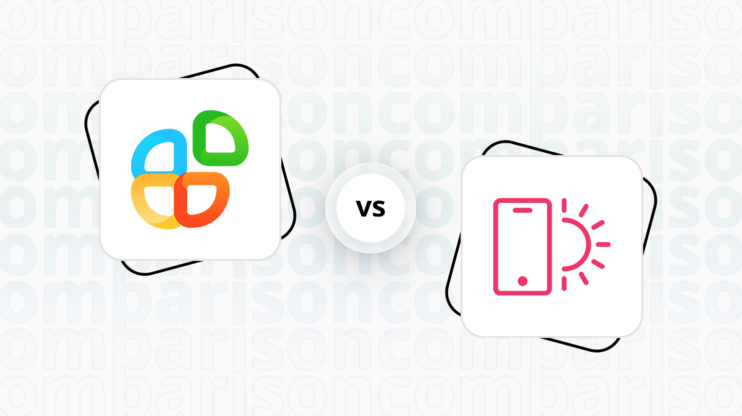Final verdict
GoDaddy and Elementor both offer robust website building solutions, but they cater to different user needs and preferences.
-
GoDaddy (Overall Grade: 7.5/10)
is a comprehensive platform that excels in providing an all-in-one solution for website creation and management. It is particularly suitable for beginners and small businesses due to its user-friendly interface, integrated features, and affordable pricing plans. GoDaddy’s strong customer support and reliable hosting services make it a dependable choice for users seeking simplicity and convenience. -
Elementor (Overall Grade: 7.4/10)
, on the other hand, is a powerful website builder plugin for WordPress that offers extensive customization options and a wide range of design features. It is ideal for users who prioritize creative control and flexibility in their website design. Elementor’s integration with WooCommerce and its advanced AI capabilities make it a great choice for more advanced users and larger online stores.

|

|
|
|---|---|---|
|
Design functionalities & templates |
8.0 |
9.2 |
|
Ease of use |
8.2 |
8.8 |
|
Ecommerce |
7.2 |
7.6 |
|
Website Editors |
6.7 |
8.5 |
|
Product testing options |
8.1 |
5.6 |
|
Price |
7.9 |
8.0 |
|
Hosting quality |
7.8 |
7.8 |
|
Website speed optimization |
7.6 |
6.7 |
|
Plugins and integrations |
7.3 |
7.6 |
|
Marketing features |
7.3 |
7.8 |
|
Customer support |
8.5 |
7.2 |
|
Security |
6.8 |
9.1 |
|
AI capabilities |
7.5 |
7.4 |
|
User Management |
7.3 |
8.8 |
Best for ecommerce
 7.2
7.2
 7.6
7.6
Verdict
: GoDaddy is user-friendly and suitable for beginners and small businesses, while Elementor offers extensive customization and is ideal for advanced users and larger online stores.
-
GoDaddy
: GoDaddy provides a straightforward ecommerce experience with integrated payment processing, flexible shipping options, and comprehensive tools for product and order management. It is a great choice for those who prefer an all-in-one platform with a user-friendly interface. However, when comparing GoDaddy vs Elementor, GoDaddy may lack the advanced customization options that more experienced users might seek. -
Elementor
: Elementor excels in customization through its seamless integration with WooCommerce, offering a variety of ecommerce-specific widgets and responsive design templates. It is perfect for users who want to tailor every detail of their online store. However, it might be more complex for beginners compared to GoDaddy.
Best for informational & business websites
 7.9
7.9
 8.9
8.9
Verdict
: Elementor is the superior choice for creating informational business websites, offering greater design flexibility and a more intuitive user experience compared to GoDaddy.
-
GoDaddy
: GoDaddy is a comprehensive platform that provides a range of services, including domain registration, web hosting, and a user-friendly website builder. It offers over 1500 templates catering to various industries and design preferences, making it a versatile option for different types of informational websites. However, its design capabilities and customization options are somewhat limited compared to Elementor. GoDaddy scores 7.9 in this category, making it a solid choice for beginners and non-technical users who need a straightforward, all-in-one solution. -
Elementor
: Elementor excels in providing a highly customizable and flexible website building experience. As a WordPress plugin, it allows users to create and edit websites through a visual drag-and-drop interface, offering a wide range of widgets and templates. Elementor’s extensive design functionalities and ease of use make it ideal for both beginners and professional web designers. With a score of 8.9, Elementor stands out for its ability to create visually appealing and highly functional informational websites. When comparing GoDaddy vs Elementor, Elementor’s advanced features and user-friendly interface make it the preferred choice for informational business websites.
Detailed comparison
Design functionalities & templates
Design FunctionalitiesRepresents how well each platform allows for creative design and customization of websites.Score Components:
- Template Variety (30%): Range and quality of design templates.
- Customization (30%): Flexibility and options for design alterations.
- User Interface (20%): Ease and intuitiveness of the design process.
- Responsiveness (10%): Adaptability to different devices and screen sizes.
- Innovation (10%): Unique design features and tools.
 8.0
8.0
 9.2
9.2
🏆
Winner: Elementor.
If you’re looking for a platform that offers more creative control, a wide array of design features, and a larger number of templates, Elementor is the preferred choice.
GoDaddy provides an extensive collection of over 1500 website templates catering to diverse industries and design preferences. These templates cover business, ecommerce, creative, personal, and non-profit sectors, offering various styles such as modern, classic, bold, minimalist, and content-focused.
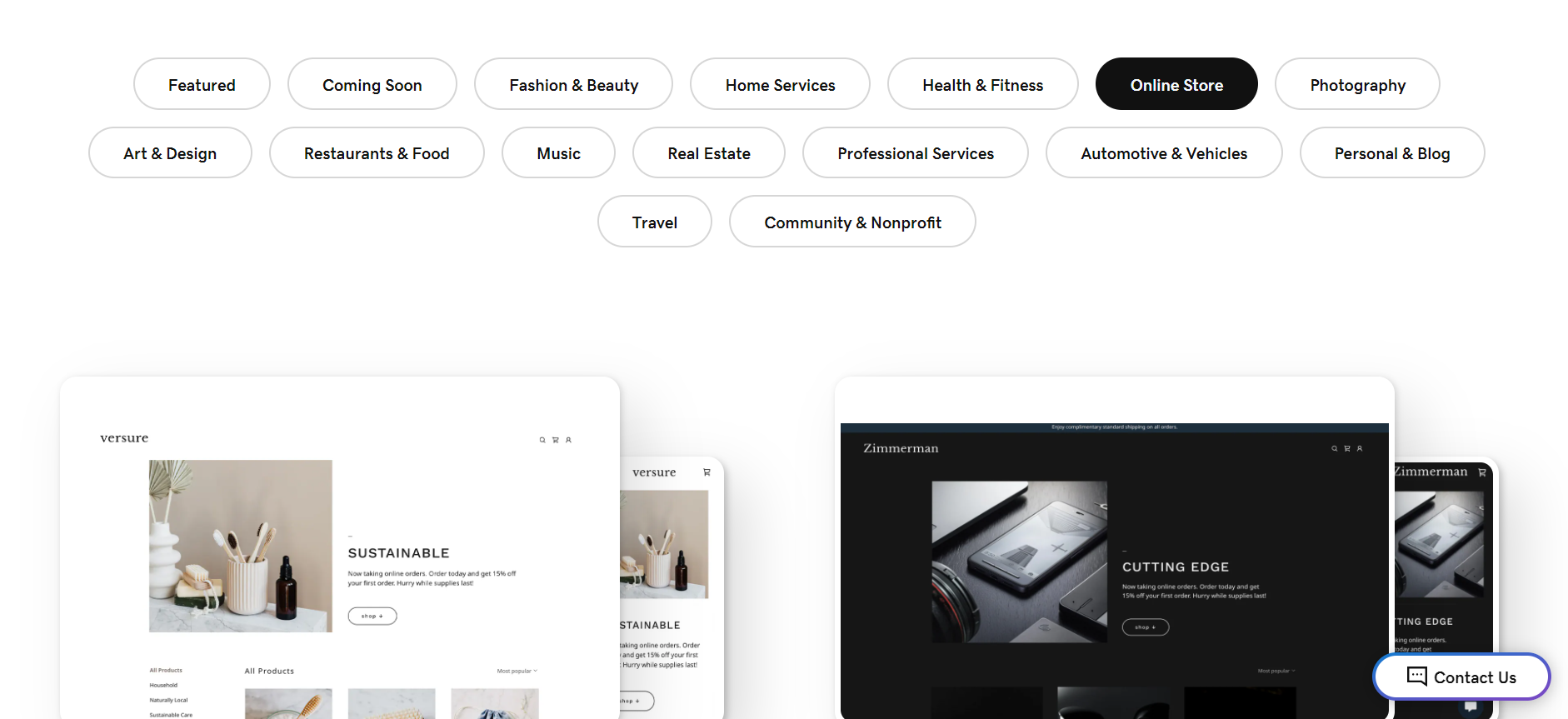

Compared to GoDaddy, Elementor offers an extensive range of templates and designs, with over 100 responsive website kits covering various categories like business, creative, education, and more, directly available through Elementor’s platform. Additional sources like Envato Elements, Template Monster, and others provide a wider selection, including free and premium options, catering to diverse web design needs.
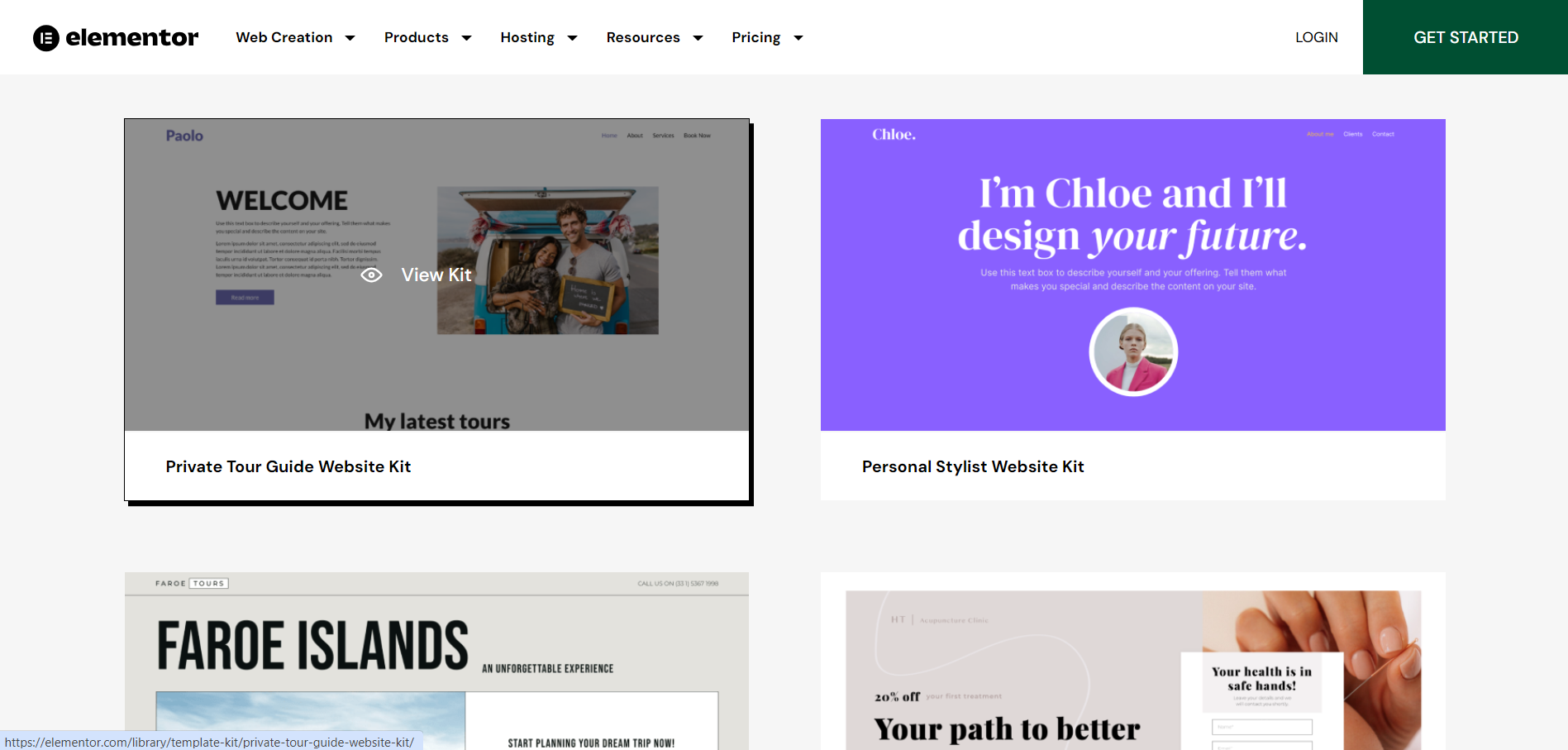
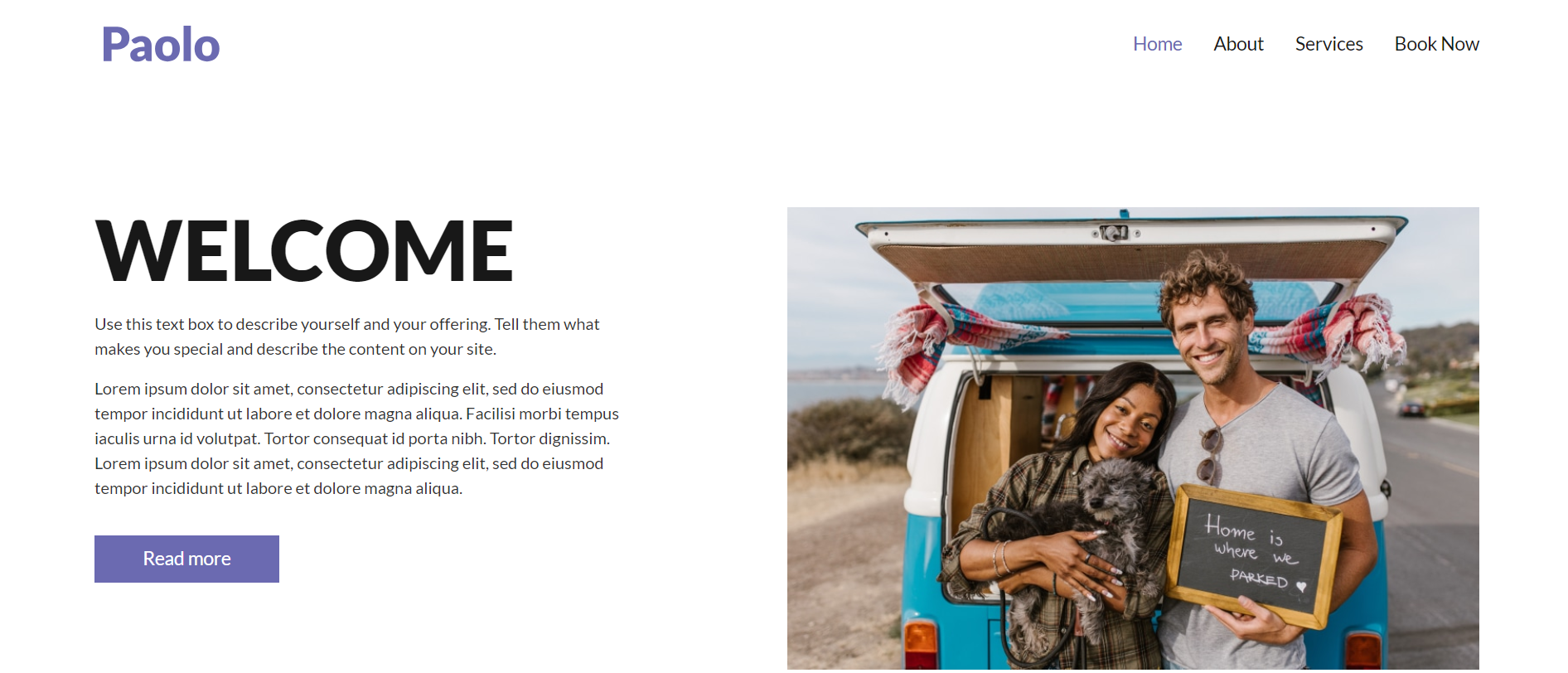
Get a head start on website creation with AI
Create a custom website tailored to your business needs 10X faster with 10Web AI Website Builder!
Ease of use
Ease of useReflects the platform’s overall user-friendliness.Score
Components:
- Learning curve (40%): Quickness and ease of getting started.
- Interface design (30%): Simplicity and intuitiveness of layout.
- User guidance (20%): Quality of tutorials and support.
- Flexibility (10%): Adaptability to various user skills.
 8.2
8.2
 8.8
8.8
🏆 Winner: Elementor
. With a score of 8.8, Elementor edges out GoDaddy (8.2) in terms of ease of use. Elementor’s user-friendly interface, drag-and-drop functionality, and wide range of pre-designed templates make it a more intuitive platform for building websites. However, GoDaddy’s simplicity and convenience, particularly for beginners and non-technical users, make it a strong contender.
Learning Resources
🏆 Winner: Elementor
. Both platforms offer a range of learning resources, but Elementor’s extensive Elementor Academy and the wealth of free resources available online make it the winner in this category.
For ecommerce
EcommerceMeasures the platform’s effectiveness in supporting online business activities.Score Components:
- Ecommerce themes and templates (20%): Variety and design of templates.
- Product management (25%): Ease of managing and organizing products.
- Payment options (25%): Variety and convenience of payment methods.
- Ecommerce features (20%): Features for managing an ecommerce store.
- Integration (10%): Compatibility with external e-commerce tools and services.
 7.2
7.2
 7.6
7.6
GoDaddy and Elementor both offer ecommerce capabilities, but their approaches and features differ significantly. GoDaddy provides a user-friendly experience with integrated payment processing, flexible shipping options, and comprehensive tools for product and order management. On the other hand, Elementor offers robust ecommerce capabilities through its seamless integration with WooCommerce, providing customizable product pages, a variety of ecommerce-specific widgets, and responsive design templates for building online stores.

|

|
|
|---|---|---|
|
Ecommerce themes and templates |
6.5 |
7.8 |
|
Product page customization |
6.0 |
8.4 |
|
Payment processing and commissions |
7.5 |
7.5 |
|
POS capabilities |
6.0 |
5.5 |
|
Payment gateways |
7.0 |
7.0 |
|
Product numbers |
7.0 |
7.0 |
|
Additional ecommerce features |
6.5 |
8.0 |
GoDaddy ecommerce features:
- Payment processing
- Shipping options
- SEO tools
- Email marketing features
- Social media integrations
- Detailed reports
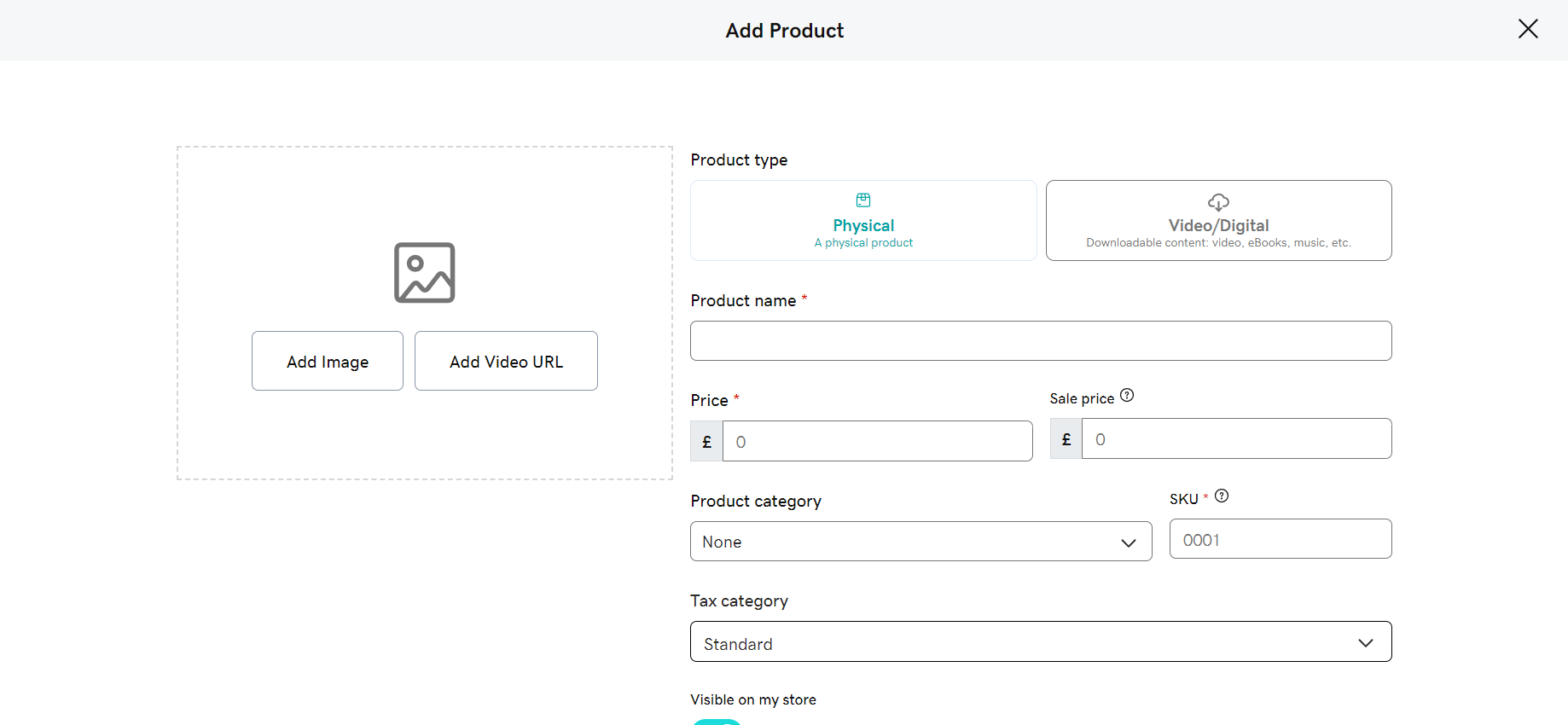
Elementor ecommerce features:
- WooCommerce Integration
- Customizable Product Pages
- Ecommerce Widgets
- Product Categories and Filters
- Shopping Cart Customization
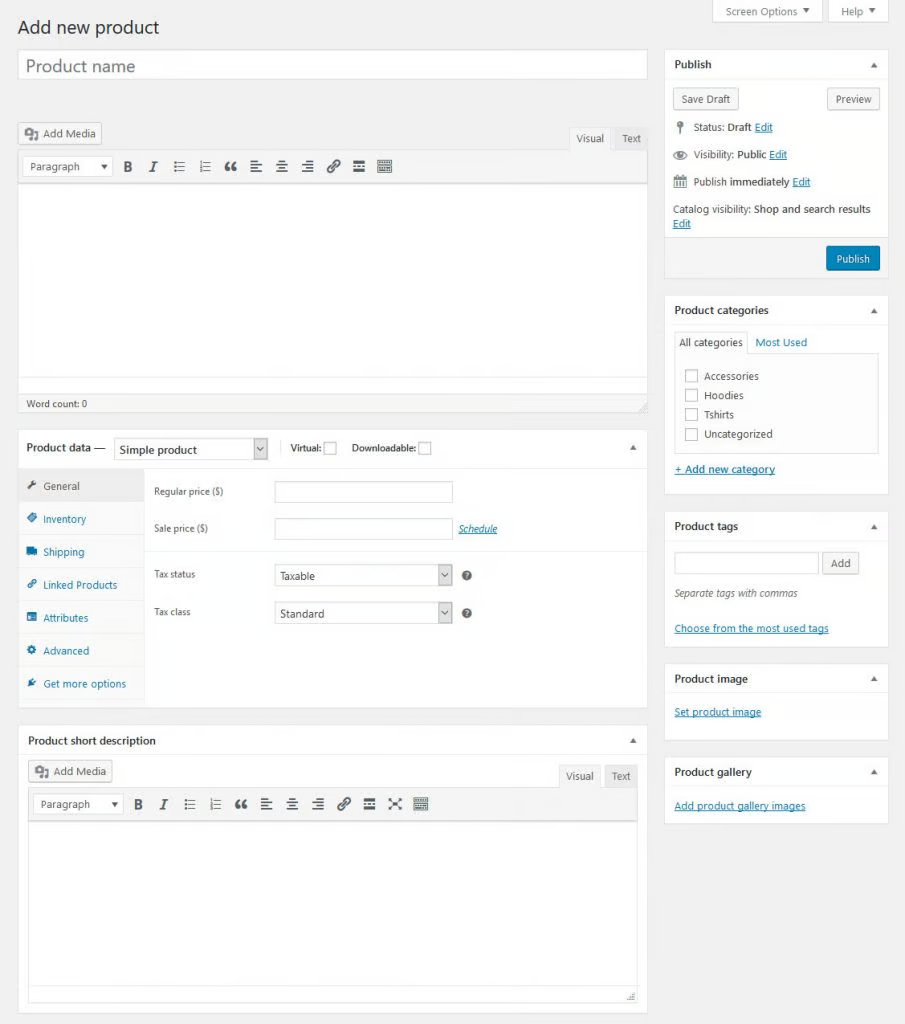
Ecommerce themes & templates
GoDaddy offers around 70-80 ecommerce themes that cover diverse industries and styles. These themes are generally mobile-friendly with basic customization options. However, they may lack the niche variety and cutting-edge designs found on dedicated ecommerce platforms. Extensive design changes might necessitate coding knowledge within the builder’s framework.
Elementor, on the other hand, offers a diverse range of ecommerce-specific templates suitable for various online stores. These templates are designed to be mobile-responsive and SEO-friendly, ensuring optimal performance across devices and search engines. With a focus on user experience, Elementor templates allow for easy customization, including color and font changes, addition of product pages, and optimization for mobile use.
Product page customization
GoDaddy’s ecommerce platform offers users basic customization options like editing content, adding images, and adjusting layouts. For advanced customization, coding knowledge is required, enabling features such as custom CSS, third-party app integrations, and the creation of unique product page templates.
Elementor offers extensive customization options for WooCommerce product pages, including custom layouts, WooCommerce widgets for various product elements, and options for styling product galleries and ‘Add to Cart’ buttons. It allows for the display and customization of product variants, although the number of variants is technically limited by WooCommerce, not Elementor.
Payment processing
GoDaddy Payments provides a versatile solution for online, in-person, and phone payments with a tiered pricing structure. Generally, online transactions have the lowest fees (2.3% + 30¢), while in-person and manually entered transactions have slightly higher rates (2.3% + 0¢).
Elementor supports several payment gateways, notably through plugins and integrations, with Stripe and PayPal being prominent options for simple and widespread use. These gateways charge their own transaction fees, typically around 2.9% + $0.30 per transaction, but Elementor itself does not impose additional fees for transactions.
In conclusion, both GoDaddy and Elementor offer solid ecommerce capabilities, but their suitability will depend on the specific needs and preferences of the user. GoDaddy’s user-friendly interface and integrated features make it a good choice for beginners and small businesses, while Elementor’s extensive customization options and integration with WooCommerce make it a powerful tool for more advanced users and larger online stores.
Website Editors
Website EditorsEvaluates the platforms’ website building and editing capabilities.Score Components:
- Customization tools (40%): Range and power of editing features.
- Editor usability (30%): User experience within the editor.
- Design flexibility (20%): Freedom in layout and design changes.
- Update and maintenance ease (10%): Simplicity of updating and maintaining the site.
 6.7
6.7
 8.5
8.5
🏆
Winner: Elementor
. Elementor, with a score of 8.5, offers a drag-and-drop interface that makes it easy to customize layouts, add content, and style websites visually in real-time. With a wide array of widgets and templates, users can effortlessly design complex elements such as sliders, forms, and animated headlines. Additionally, Elementor provides responsive design options, ensuring websites look great on all devices, alongside advanced features like custom CSS, role-based access control, and integration with a variety of marketing tools.
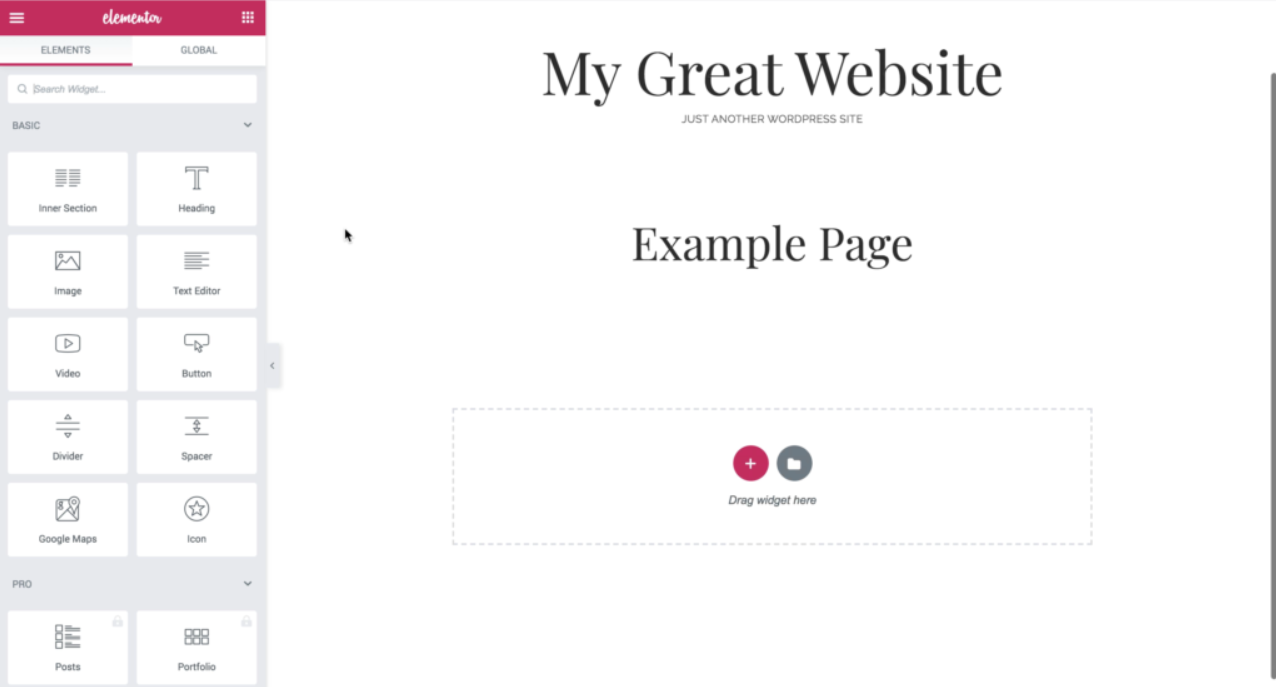
GoDaddy’s editor, scoring 6.7, is a user-friendly drag-and-drop tool enabling website creation without coding. It offers pre-designed templates, a mobile-friendly interface, basic SEO tools, and ecommerce integration, making it accessible for beginners, with affordable pricing plans and an all-in-one solution. However, it has some design limitations, basic features compared to dedicated platforms, a learning curve for extensive use, and potentially limited third-party app integrations.
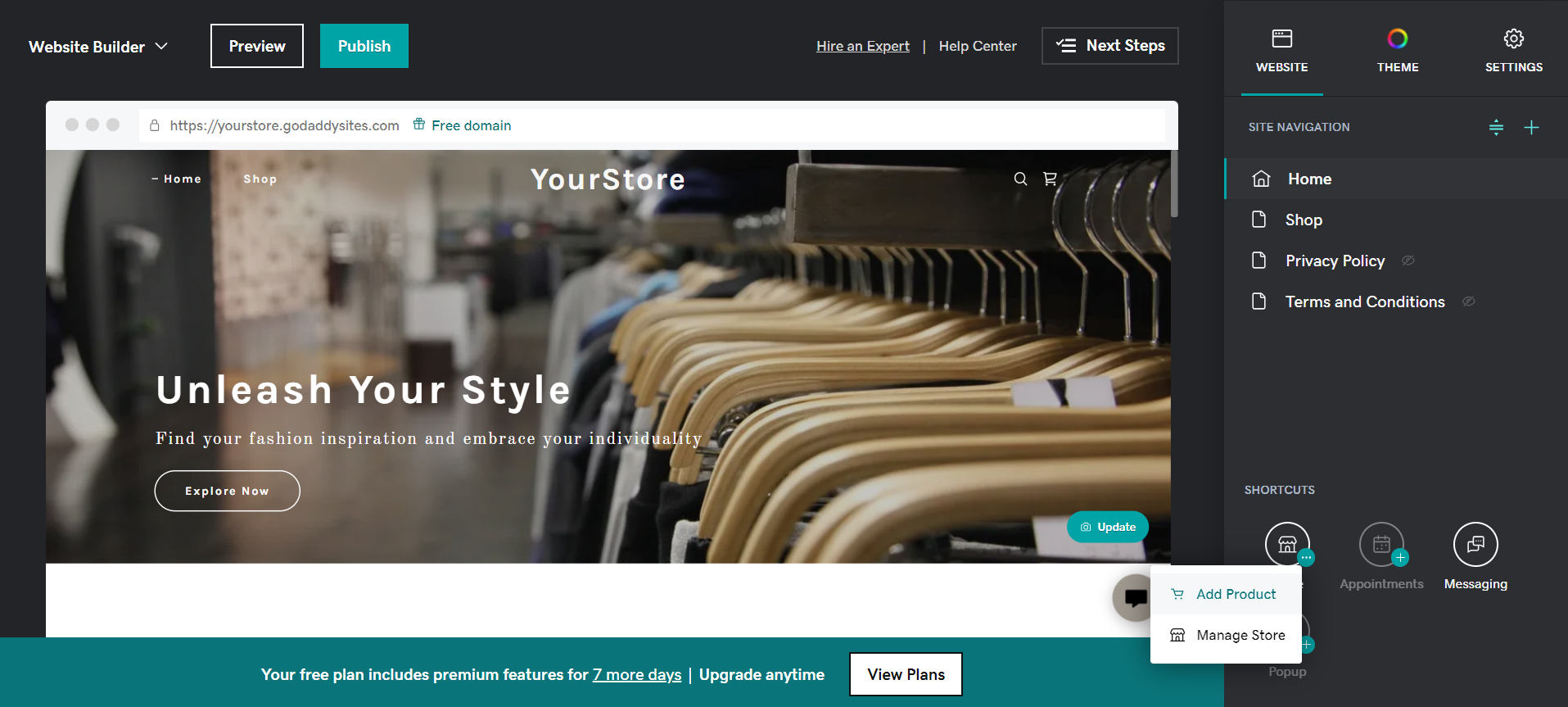
Mobile editor/app
 5.5
5.5
 0
0
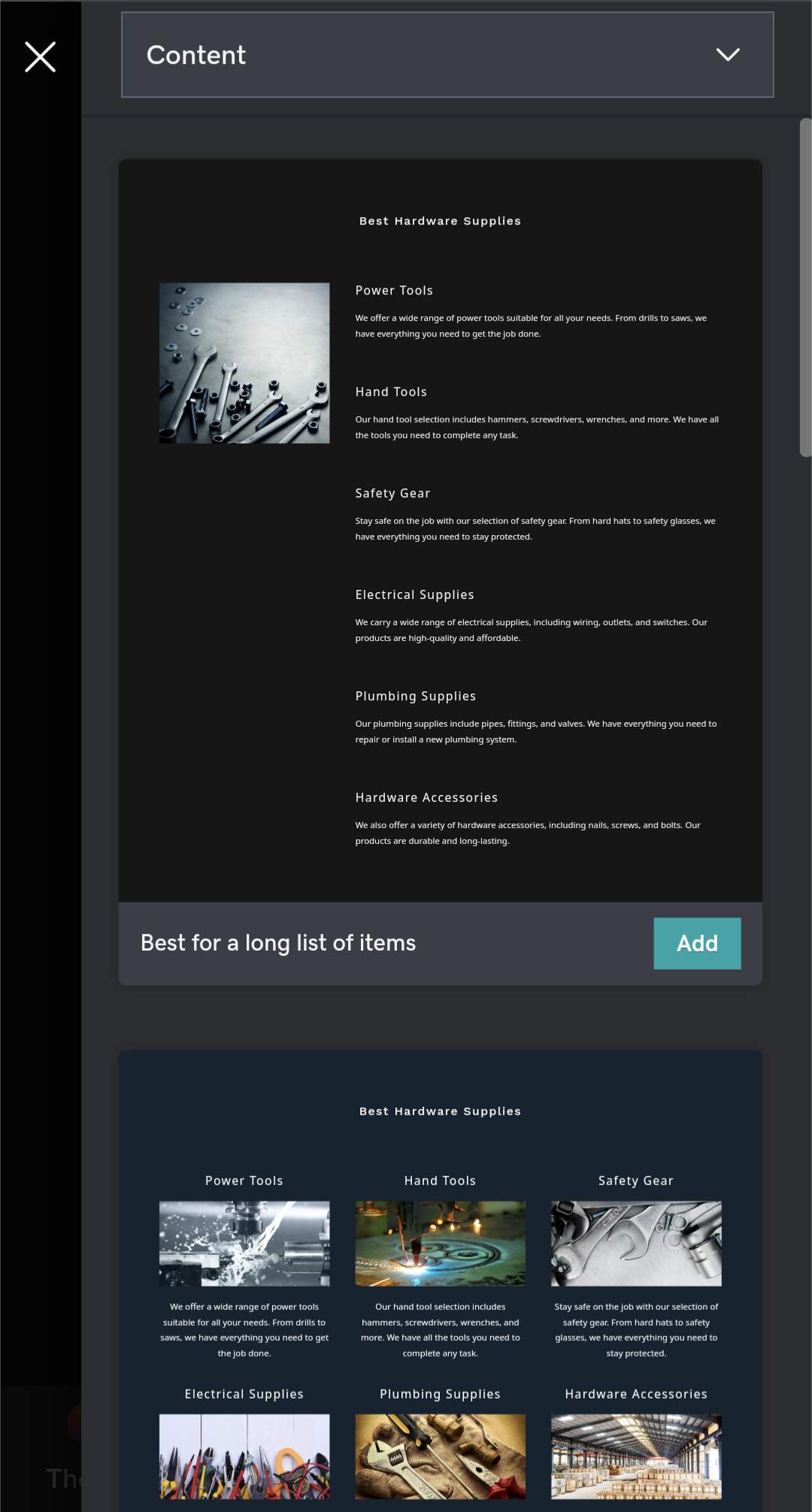
🏆
Winner: GoDaddy
. Both GoDaddy and Elementor have limited mobile editing capabilities. GoDaddy does not have a dedicated mobile app for editing websites, but users can log into their GoDaddy account and access the website builder through a mobile web browser. While the experience might be slightly more constrained on a smaller screen, it still provides some level of mobile editing capability.
On the other hand, Elementor does not have a mobile editor at all. This means that users cannot make changes to their websites on the go, which can be a significant disadvantage for those who need to make quick updates or changes to their site from a mobile device.
Therefore, even though neither platform offers a robust mobile editing experience, GoDaddy comes out ahead due to its ability to provide some level of mobile editing through a web browser.
Product testing options
Product Testing OptionsAssesses the options for trying out platform features before commitment.Score Components:
- Trial quality (40%): Extent and usefulness of the trial or free version.
- Feature accessibility (30%): How many features are available to test.
- Trial duration (20%): Length of the trial period.
- Ease of transition (10%): Smoothness of moving from trial to paid plans.
 8.1
8.1
 5.6
5.6
Overall Result
:
GoDaddy Wins
. GoDaddy scores 8.1 in product testing options, while Elementor scores 5.6. GoDaddy offers a free version and a 30-day money-back guarantee, allowing users to explore all the features of any paid plan and get a full refund if not satisfied. Elementor also provides a free version, but only for self-hosted WordPress.org, and does not offer a trial version. However, it does allow testing of all premium features during the refundable period.

|

|
|
|---|---|---|
|
Free Plan |
Yes |
Yes, but only for self-hosted WordPress.org |
|
Trial Duration |
No, 30-day money-back guarantee |
No |
|
Testing Premium Features |
Yes, during the 30-day refund window |
Yes, during the refundable period |
Price
PriceLooks at the cost-effectiveness and value for money of each platform.Score Components:
- Plan value (40%): What each pricing tier offers.
- Transparency and clarity (30%): Clearness of pricing structures.
- Flexibility of plans (20%): Range of options to suit different budgets.
- Hidden costs (10%): Additional expenses not included in the plan.
 7.9
7.9
 8.0
8.0
GoDaddy and Elementor have similar price scores, but GoDaddy offers a wider range of plans and a discount for annual payments, while Elementor’s plans are billed annually with no additional discounts.

|

|
|
|---|---|---|
|
Free |
Free ($0/month): Build a basic website with limited templates, storage, and features. Ideal for testing the platform. |
No offering at this amount. |
|
$0-$8 |
Basic ($5.99/month): More templates, custom domain support, email marketing, SEO tools, social media integrations, analytics. Ideal for personal websites and small businesses. Value for price: 6.5 |
No offering at this amount. |
|
$8-$10 |
Premium ($9.99/month): All Basic features + blog, ecommerce with product listings and payments, advanced marketing tools, and analytics. Ideal for businesses with online sales or growing web presence. Value for price: 8.0 |
Basic ($9.99/month): 1 website, with 10GB SSD storage, 25k monthly visitors, 30GB monthly bandwidth, daily auto backups stored for 14 days, Cloudflare CDN, and integrated caching tool. Value for price: 6.5 |
|
$10-$18 |
Commerce ($15.99/month): All Premium features + advanced ecommerce tools like cart recovery, discounts, reviews, memberships, and unlimited products. Ideal for businesses with significant online sales and complex product offerings. Value for price: 9.0 |
No offering at this amount. |
|
$18-$20 |
Pro ($19.99/month): All Commerce features + priority support, higher bandwidth, website security, and CDN. Ideal for businesses with high traffic and critical online presence. Value for price: 9.5 |
Business ($19.99/month): 1 website, with 20GB SSD storage, 50k monthly visitors, 50GB monthly bandwidth, daily auto backups stored for 30 days, Cloudflare CDN, integrated caching tool and access to staging environment. Value for price: 7.5 |
|
$20-$30 |
No offering at this amount. |
Grow ($22.99/month): 3 websites, with 30GB SSD storage, 75k monthly visitors, 75GB monthly bandwidth, daily auto backups stored for 30 days, Cloudflare CDN, integrated caching tool, access to staging environment and site cloning. Value for price: 8.5 |
|
$40+ |
No offering at this amount. |
Scale ($49.99/month): 10 websites, with 40GB SSD storage, 100k monthly visitors, 100GB monthly bandwidth, daily auto backups stored for 30 days, Cloudflare CDN, integrated caching tool, access to staging environment and site cloning. Value for Price: 9.0 |
location. As a result in rare cases the prices displayed here can differ from the ones you see on their
websites.
Hosting quality
Hosting
qualityExamines the reliability and performance of the hosting solutions.Score Components:
- Uptime (40%): Consistency and reliability of website availability.
- Speed (30%): Loading times and performance.
- Bandwidth and storage (20%): Sufficiency of resources provided.
- Data centers (10%): Quality and distribution of hosting infrastructure.
 7.8
7.8
 7.8
7.8
Winner: Tie
. Both GoDaddy and Elementor offer reliable hosting services with their plans. GoDaddy provides a variety of hosting types, including shared, VPS, dedicated, and WordPress hosting, while Elementor offers managed WordPress hosting. Both have an uptime of 99.9% with an uptime guarantee. GoDaddy has data centers in multiple countries, while Elementor has one data center in Belgium.

|

|
|
|---|---|---|
|
Do they offer hosting? |
Yes, included in all paid plans |
Yes, included in all paid plans |
|
Data Centers: |
Data Centers in USA, France, Germany and UK Cloud Services Through AWS |
1 data center in Belgium |
|
Type of hosting: |
Shared Hosting, VPS Hosting, Dedicated, WordPress Hosting |
Managed WordPress Hosting |
|
Uptime: |
99.9% |
99.9% |
|
Uptime Guarantee: |
Yes, 99.9% |
Yes, 99.9% |
Website Speed Optimization
Website Speed OptimizationEvaluates optimization of website loading timesScore Components:
- PageSpeed Score (30%): Google’s score indicating performance optimization.
- Loading Time (30%): The average time until a website is fully interactive.
- Mobile Optimization (15%): Optimization effectiveness for mobile devices.
- Resource Optimization (15%): Optimizing images, scripts, and other heavy resources.
- CDN Usage (10%): Use of CDN to enhance speed across geolocations.
 7.6
7.6
 6.7
6.7
🏆 Winner: GoDaddy
Both GoDaddy and Elementor have strategies in place for website speed optimization, but GoDaddy’s specific improvements and transparency give it the edge.

|

|
|
|---|---|---|
|
Focus |
CDN, Automatic Maintenance, Resource Optimization |
Lazy Loading, Code Minification, Caching, CDN |
|
Performance Tools |
Not specified |
Not specified |
|
Key Strategies |
CDN, Automatic Maintenance, Resource Optimization |
Lazy Loading, Code Minification, Caching, CDN |
|
Load Times |
Shared Hosting: 2-4 seconds, VPS Hosting: 1-2 seconds, Dedicated Server: 0.5-1.5 seconds |
Varies depending on optimization and website complexity |
|
Page Speed Scores Range |
Shared Hosting: 50-70/100, VPS Hosting: 70-85/100, Dedicated Server: 80-95/100 |
Not specified |
|
Core Web Vitals Improvement |
Infrastructure upgrades, effective caching mechanisms, image optimization tools, automatic minification of code files |
Not disclosed |
GoDaddy has made significant strides in website speed optimization, with strategies including CDN, automatic maintenance, and resource optimization. They have also made infrastructure upgrades, including improved server infrastructure and data centers, resulting in faster loading times. Additionally, the implementation of effective caching mechanisms, image optimization tools, and automatic minification of code files contribute to a smoother user experience and improved Core Web Vital metrics. The website builder features optimized templates and code structures for efficient rendering, further enhancing overall performance.
Elementor, on the other hand, focuses on lazy loading, code minification, caching, and CDN for website speed optimization. However, they do not disclose any specific improvements or metrics related to Core Web Vitals, and their performance varies depending on optimization and website complexity. This lack of transparency and variability in performance gives GoDaddy the edge in website speed optimization.
Get a head start on website creation with AI
Create a custom website tailored to your business needs 10X faster with 10Web AI Website Builder!
Plugins and integrations
Plugins and integrationsMeasures the range and effectiveness of additional plugins and integrations.Score Components:
- Variety of options (40%): Range of available add-ons.
- Integration smoothness (30%): Ease of integrating plugins into the site.
- Quality of plugins (20%): Functionality and reliability of the options.
- Custom integration capabilities (10%): Support for custom or third-party integrations.
 7.3
7.3
 7.6
7.6
🏆 Winner: Elementor.
Elementor scores 7.6, slightly ahead of GoDaddy’s 7.3. Elementor’s strength lies in its wide range of add-ons, both free and premium, that enhance website building. It offers advanced features such as theme building, dynamic content, and extensive widget libraries. GoDaddy, on the other hand, offers a more focused set of built-in features with the option to extend functionalities through limited plugins. However, it provides access to the extensive WordPress plugin repository in its Managed and Unmanaged WordPress Hosting.
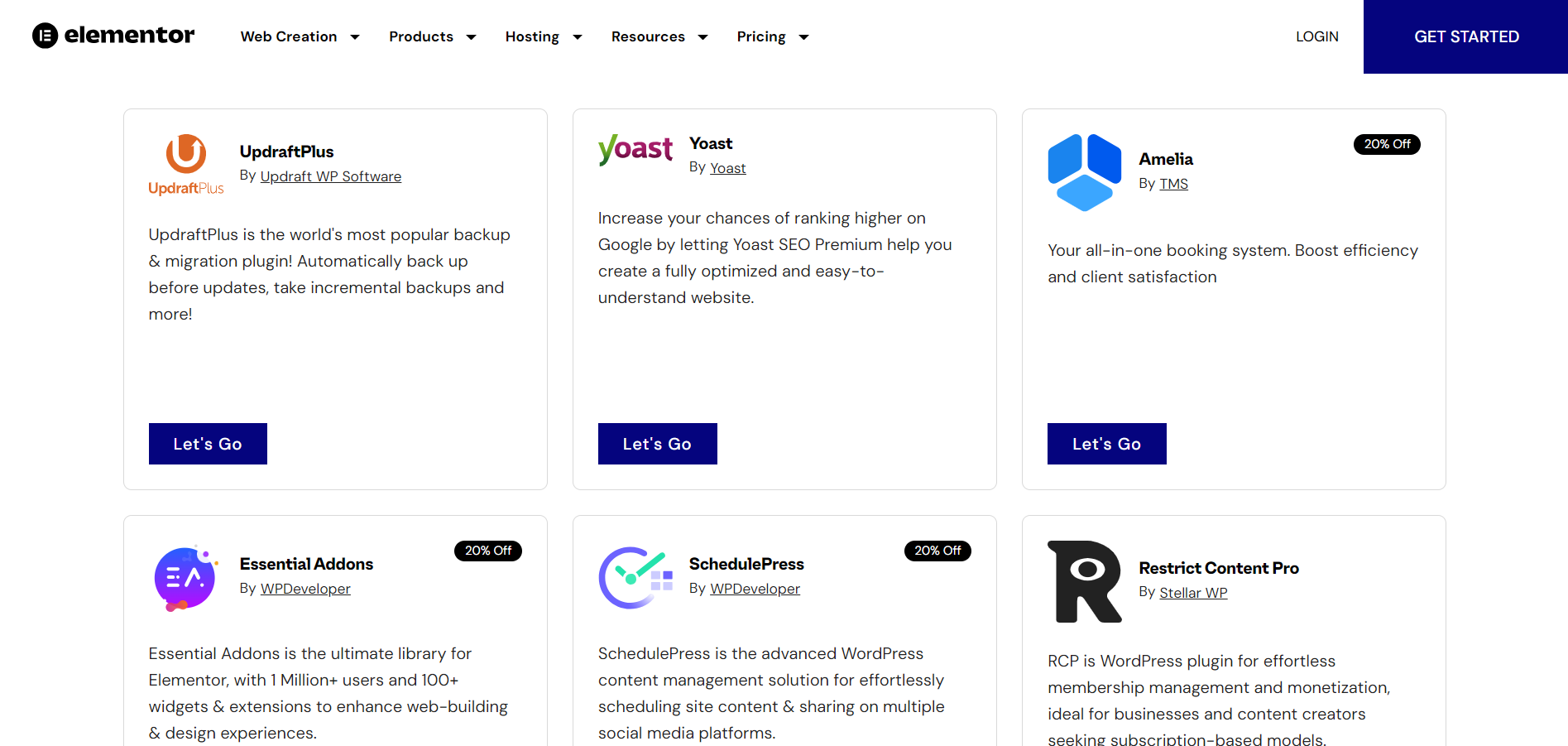
Marketing Features
Design FunctionalitiesRepresents how well each platform allows for creative design and customization of websites.Score Components:
- Template Variety (30%): Range and quality of design templates.
- Customization (30%): Flexibility and options for design alterations.
- User Interface (20%): Ease and intuitiveness of the design process.
- Responsiveness (10%): Adaptability to different devices and screen sizes.
- Innovation (10%): Unique design features and tools.
 7.3
7.3
 7.8
7.8
🏆
Overall Winner: Elementor
. Elementor edges out GoDaddy with a slightly higher score, thanks to its flexibility and extensive integration capabilities. However, GoDaddy’s all-in-one platform also offers a robust set of marketing tools, making it a strong contender.

|

|
|
|---|---|---|
|
SEO Tools |
|
|
|
Email Marketing |
|
|
|
Blogging |
|
|
|
Social Media Integration |
Tools for social media linking and content sharing |
Integration of social media buttons |
|
Analytics and Reporting |
Basic analytics with more detailed insights on higher plans |
Integration of Google Analytics |
|
Ads and Promotions |
Features to create and track online ads, including Google Ads |
|
Customer Support
Customer supportEvaluates the quality and availability of support options.Score Components:
- Response time (40%): Speed of support responses.
- Support quality (30%): Effectiveness and helpfulness of the support.
- Availability (20%): Range of support channels (phone, chat, email).
- Resource richness (10%): Quality of self-help and educational materials.
 8.5
8.5
 7.2
7.2
🏆 Winner: GoDaddy
. In the GoDaddy vs Elementor comparison, GoDaddy takes the lead with its extensive customer support options. GoDaddy offers 24/7 phone support in multiple languages, live chat, and email assistance, ensuring users can get help whenever they need it. Additionally, GoDaddy’s community forum and social media channels provide further support avenues, making it a robust choice for users seeking comprehensive assistance.
Elementor, while providing 24/7 live chat and ticketing support, falls short in comparison. Although their global Customer Experience agents ensure round-the-clock availability, Elementor lacks the extensive support channels and enterprise-level support that GoDaddy offers. This makes GoDaddy the more reliable option for users who prioritize accessible and versatile customer support.
Security
SecurityLooks at the platforms’ security measures and data protection.Score Components:
- Data protection (40%): Safeguards for user and customer data.
- SSL and encryption (30%): Implementation of secure connections.
- Compliance (20%): Adherence to industry security standards.
- Regular updates (10%): Frequency of security updates and patches.
 6.8
6.8
 9.1
9.1
🏆
Winner: Elementor
. Elementor’s security measures are more comprehensive than GoDaddy’s. Elementor leverages Google Cloud’s infrastructure for high security, including end-to-end encryption. It also employs both active and passive security measures, including 24/7 monitoring, regular updates, backups, and specialized security protocols to protect against common threats. Elementor’s commitment to security is further emphasized by its ISO 27001 certification and a proactive Bug Bounty program.
GoDaddy, on the other hand, provides robust website security with plans offering features like SSL certificates, malware scanning, and web application firewalls. However, it provides limited options for private data storage protection, which may not be sufficient for compliance with regulations like HIPAA or GDPR.
AI Capabilities
AI capabilitiesMeasures the effectiveness of AI-driven features and tools.Score Components:
- Automation efficiency (40%): Impact of AI on streamlining processes.
- Personalization (30%): AI-driven customization for users or customers.
- AI-Assisted design (20%): Role of AI in website design and functionality.
- Data analysis (10%): Use of AI in interpreting user data and analytics.
 7.5
7.5
 7.4
7.4

|

|
|
|---|---|---|
|
AI Builder |
|
Elementor’s AI builder generates text, custom codes, and images |
|
AI Ecommerce Features |
AI-generated product descriptions, customer service tool, and digital ad creation |
AI-driven features for generating container layouts, custom images, text, and code |
|
AI Content Generation |
AI-generated product descriptions, customer service messages, and social media ads |
AI writing assistant, text and code generation, AI-based image solutions |
|
Additional AI Features |
|
Integration with third-party AI powered WordPress plugins or widgets |
🏆 Winner: Elementor
. Elementor, with a score of 7.4, offers a more comprehensive set of AI features, including an AI builder, AI-driven ecommerce features, and AI content generation capabilities. Its AI builder is particularly noteworthy, as it allows for the generation of text, custom codes, and images directly within the Elementor editor, facilitating a more efficient and creative workflow.
GoDaddy, scoring 7.5, utilizes AI mainly for ecommerce and content generation. Its AI features include AI-generated product descriptions, a customer service tool, and digital ad creation. However, it lacks an AI builder and additional AI features, making it less versatile compared to Elementor.
User Management
User ManagementAssesses the platforms’ capabilities in managing user roles, permissions, and accessibility.Score Components:
- Role Customization (40%): Flexibility in creating and defining user roles and
permissions. - Ease of Management (30%): User interface and tools for managing users.
- Access Control (20%): Effectiveness of access control measures for different user
levels. - Scalability (10%): Ability to manage a growing number of users efficiently.
 7.3
7.3
 8.8
8.8
🏆 Winner: Elementor
. Both GoDaddy and Elementor offer different approaches to user management.
- GoDaddy’s number of users who can edit a website varies based on the hosting plan and website building tool. For Website Builder (GoCentral and Websites + Marketing), the free plan permits one user, while Deluxe and Ultimate plans allow up to five users with full editing permissions. In WordPress Hosting, there’s default support for unlimited users, each with customizable permission levels controlled through the WordPress dashboard.
- Elementor’s number of users who can edit or manage a website depends on the roles and permissions set within WordPress, as Elementor operates on WordPress. Administrators have full access to edit any part of the site, including Elementor settings, while Editors can manage posts and pages made with Elementor. Authors and Contributors have limited capabilities, with the former being able to manage their own posts. Elementor Pro offers a Role Manager feature, enabling further customization of what different roles can do within Elementor, but there’s no fixed limit on the number of users—it’s determined by the roles assigned by the site administrator.
GoDaddy User Roles and Access Levels:
| Role | Description | Access Highlights |
|---|---|---|
| Account Holder | The primary owner of the GoDaddy Website Builder account. | Full access to all website builder features, domain management, hosting settings, and account settings. |
| Delegate Access | Users granted permission by the account holder to access specific parts of the GoDaddy account. | Can be given varying levels of access, from managing domains and products to making purchases on behalf of the account holder. |
| Website Editor | Users with permissions to edit and update the website through the Website Builder interface. | Can customize the website, add or edit sections (e.g., image galleries, menus), and update content. |
| Online Store Manager | Specifically for websites with e-commerce capabilities, managing product listings, orders, and payments. | Access to manage the online store, including product listings, coupons, shopping cart, shipping, and payments. |
Elementor User Roles and Access Levels:
| Role | Description | Access Highlights |
|---|---|---|
| Administrator | Users with full access to all administration features, including Elementor settings. | Can edit all content, Access to Elementor settings, Can install plugins and themes, Can manage users |
| Editor | Users who can manage and publish content including pages and posts. | Can edit pages/posts created with Elementor, Cannot access Elementor settings, Can manage categories, tags, and links, Can moderate comments |
| Author | Users who can publish and manage their own posts. | Can create posts with Elementor, Cannot edit pages, Limited access to media library, Cannot access Elementor settings |
| Contributor | Users who can write and manage their own posts but cannot publish them. | Can create content with Elementor, Cannot publish or edit pages, No access to Elementor settings, Submissions require review by higher-level roles |
Additional Features

|

|
|
|---|---|---|
|
SSL Certificate |
|
|
|
Custom Domain |
|
|
|
Free Custom Domain Included |
|
|
|
International Domains |
|
|
|
Mobile Responsive |
|
|
|
Page Speed |
|
|
|
Website Builder Mobile App |
|
|
|
Convert a Website To An App |
|
|
|
Website Analytics |
|
|
|
Multilingual Sites |
|
|
|
Multiple Users |
|
|
User Feedback
Users generally praise GoDaddy for its affordability, reliability, and user-friendly interface, particularly in domain registration and hosting services. However, concerns include occasional interface changes, perceived slowness in website hosting, and dissatisfaction with pricing increases.
Elementor is widely appreciated for its intuitive drag-and-drop interface, enabling rapid creation of professional and responsive websites without coding skills. It offers a vast range of templates and compatibility with WordPress, making it a go-to for diverse users. Despite its benefits, concerns arise regarding website loading times, subscription costs, and occasional compatibility issues. Feedback on customer support and legacy plan management is mixed, with some users experiencing dissatisfaction. Overall, Elementor is valued for its efficiency in web development, although some aspects, particularly support services, could be improved.
The making of this blog
We followed a clear, step-by-step process to write and research this article.
FAQ
Which platform is better for beginners, GoDaddy or Elementor?
Can I use both GoDaddy and Elementor for ecommerce websites?
How do GoDaddy and Elementor differ in terms of design and customization?
Which platform offers better customer support, GoDaddy or Elementor?
Are GoDaddy and Elementor suitable for users without coding skills?
Which platform is more affordable, GoDaddy or Elementor?










